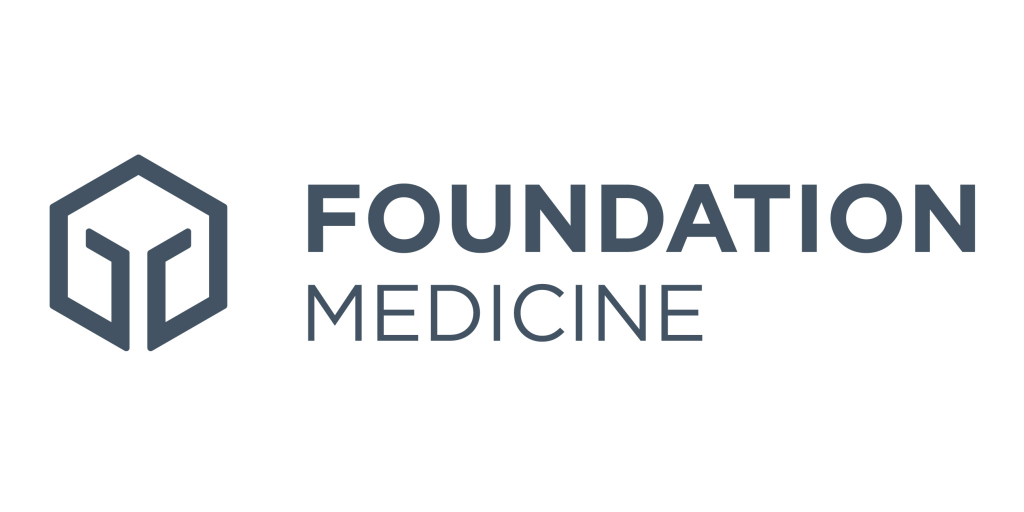The approval supports the identification of therapeutic options for patients with relapsed or refractory BRAF-altered pediatric low-grade glioma and marks Foundation Medicine’s first companion diagnostic indication to exclusively support pediatric patients
FoundationOne®CDx is the first and only companion diagnostic for OJEMDA
BOSTON--(BUSINESS WIRE)--Foundation Medicine, Inc. today announced that it has received approval from the U.S. Food and Drug Administration (FDA) for FoundationOne®CDx to be used as a companion diagnostic for Day One Biopharmaceuticals’ OJEMDA, a type II RAF inhibitor, for the treatment of patients six months of age and older with relapsed or refractory pediatric low-grade glioma (pLGG) harboring a BRAF fusion or rearrangement, or BRAF V600 mutation. FoundationOne CDx is the first and only companion diagnostic for OJEMDA.
pLGG is the most common brain tumor diagnosed in children.1,2 In this patient population, a BRAF alteration is detected in up to 75 percent of cases. Previously, no FDA-approved treatment options were available targeting tumors harboring BRAF fusions, which represent 80% of BRAF altered patients.3,4,5,6,7
“Foundation Medicine is proud to partner with Day One to help healthcare providers connect pediatric patients and families with this treatment option,” said Mia Levy, M.D., Ph.D., chief medical officer at Foundation Medicine. “Our high-quality tissue-based companion diagnostic test is uniquely capable of detecting both BRAF V600 mutations and fusions which enables providers to gain the complete genomic picture of their patient’s tumor and guide treatment decision making.”
Foundation Medicine has sequenced over 2,200 pediatric central nervous system tumors8 and is the only company to offer both tissue and blood-based comprehensive genomic profiling tests that are approved by the FDA. Using a tissue sample, the FDA-approved FoundationOne CDx test analyzes more than 300 cancer-related genes in a patient’s tumor. Foundation Medicine is the global leader in approved companion diagnostic indications. Foundation Medicine also has 40% of all approved companion diagnostic indications for next-generation sequencing (NGS) testing in the United States and Japan.9,10
“Historically, pediatric patients with pLGG have faced overwhelming side effects, both near- and long-term, from aggressive treatments like chemotherapy and radiation,” said David Arons, president and chief executive officer at the National Brain Tumor Society. “We are thrilled to see that there are now additional treatment options available for these children, as well as an FDA-approved companion diagnostic test to help identify more patients who may benefit from Day One’s therapy.”
Foundation Medicine and FoundationOne® are registered trademarks of Foundation Medicine, Inc.
About Foundation Medicine: Your Essential Partner in Cancer Care
Foundation Medicine is a pioneer in molecular profiling for cancer, working to shape the future of clinical care and research. We collaborate with a broad range of partners across the cancer community and strive to set the standard for quality, scientific excellence, and regulatory leadership. Our deep understanding of cancer biology helps physicians make informed treatment decisions for their patients and empowers researchers to develop new medicines. Every day, we are driven to help our partners find answers and take action, enabling more people around the world to benefit from precision cancer care. For more information, please visit us on www.FoundationMedicine.com and follow us on LinkedIn and X.
About FoundationOne®CDx
FoundationOne®CDx is a next-generation sequencing based in vitro diagnostic device for detection of substitutions, insertion and deletion alterations (indels), and copy number alterations (CNAs) in 324 genes and select gene rearrangements, as well as genomic signatures including microsatellite instability (MSI) and tumor mutational burden (TMB) using DNA isolated from formalin-fixed, paraffin-embedded (FFPE) tumor tissue specimens. FoundationOne CDx is for prescription use only and is intended as a companion diagnostic to identify patients who may benefit from treatment with certain targeted therapies in accordance with their approved therapeutic product labeling. Additionally, FoundationOne CDx is intended to provide tumor mutation profiling to be used by qualified health care professionals in accordance with professional guidelines in oncology for patients with solid malignant neoplasms. Use of the test does not guarantee a patient will be matched to a treatment. A negative result does not rule out the presence of an alteration. Some patients may require a biopsy. For a full list of targeted therapies for which FoundationOne CDx is indicated as a companion diagnostic, please visit www.F1CDxLabel.com.
1 Ostrom, Q. T. et al. CBTRUS Statistical Report: Primary Brain and Other Central Nervous System Tumors Diagnosed in the United States in 2012-2016. Neuro Oncol 21, V1–V100 (2019).
2 Ryall, S., Tabori, U. & Hawkins, C. Pediatric low-grade glioma in the era of molecular diagnostics. Acta Neuropathologica Communications 2020 8:1 8, 1–22 (2020).
3 Sun Y, Alberta JA, Pilarz C. A brain-penetrant RAF dimer antagonist for the noncanonical BRAF oncoprotein of pediatric low-grade astrocytomas. Neuro Oncol. 2017;19(6):774-785. doi:10.1093/neuonc/now261
4 Penman CL, Faulkner C, Lowis SP, Kurian KM. Current understanding of BRAF alterations in diagnosis, prognosis, and therapeutic targeting in pediatric low-grade gliomas. Front Oncol. 2015;5:54. doi:10.3389/fonc.2015.00054
5 Ryall S, Zapotocky M, Fukuoka K, et al. Integrated molecular and clinical analysis of 1,000 pediatric low-grade gliomas. Cancer Cell. 2020;37(4):569-583.e5. doi:10.1016/j.ccell.2020.03.011
6 Cohen AR. Brain tumors in children. N Engl J Med. 2020; 386(20):1922-1931. doi:10.1056/NEJMra2116344
7 Lassaletta A, Zapotocky M, Mistry M, et al. Therapeutic and prognostic implications of BRAF V600E in pediatric low-grade gliomas. J Clin Oncol. 2017;35(25):2934-2941. doi:10.1200/JCO.2016.71.8726
8 FoundationCore® Database, March, 2024
9 List of Cleared or Approved Companion Diagnostic Devices (In Vitro and Imaging Tools). https://www.fda.gov/medical-devices/in-vitro-diagnostics/list-cleared-or-approved-companion-diagnostic-devices-in-vitro-and-imaging-tools.
10 List of Vitro Companion Diagnostics or Medical Devices (CDx Products) Approved in Japan. https://www.pmda.go.jp/files/000264514.pdf
Contacts
Media:
Abigail Linehan, 781-534-3210
newsroom@foundationmedicine.com






